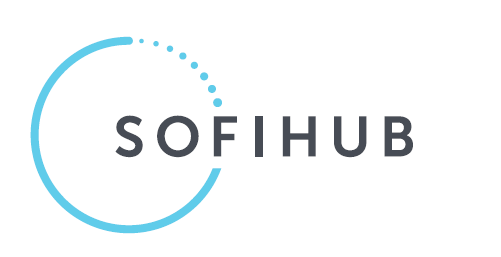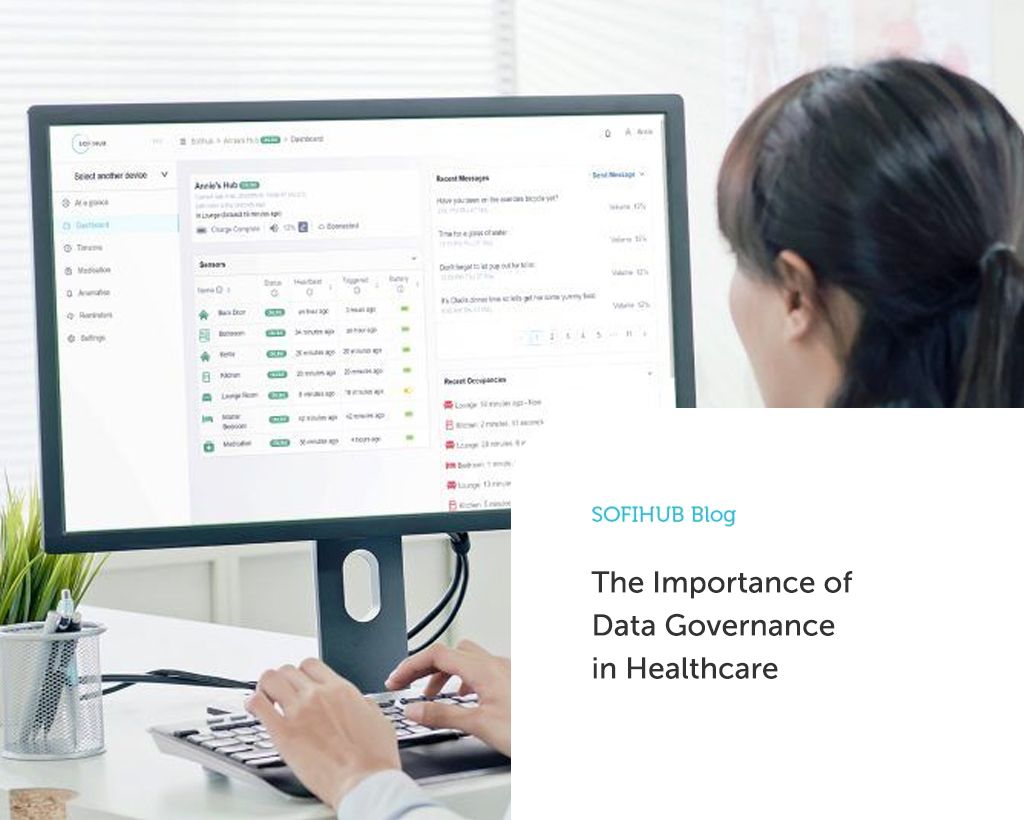As healthcare has evolved, the use of data has become more necessary and prevalent. Hospitals use data to streamline many processes in their health care facilities. However, as the sharing of data has become more widespread, there is also a growing need for data governance in healthcare.
In this article, we’ll discuss the need for data in healthcare, the current governance of that data, and the future of data governance. At SOFIHUB, we keep our finger on the pulse of healthcare technology to create the best assistive technology for older adults.
The Use of Data in Healthcare Facilities
Over the years, healthcare systems and providers have needed to use empirical evidence to back their actions. The use of data sets streamlines patient care, professional evaluations, and cost-efficiency.
Recently, there has been a growing expectation that assistive technology systems come with reporting and analytics.
Benefits of Data Reporting
By using data reporting and evaluation, there is a better elimination of risk. Facilities are also better prepared to handle future situations. Also, there is more efficient scheduling, staffing levels, audit trails, accountability, and measurement of key performance metrics.
Company leaders can use this data to make evidence-based decisions that improve patient outcomes and operational performance.
The Need for Data Governance in Healthcare
Although data governance in healthcare is a relatively new term, it is not a new concept in healthcare. Health professionals have been using and managing health information for decades. So why has data governance become so popular recently?
How Data Governance Has Evolved
There has been a noticeable increase in data volume and availability due to electronic means. For example, organisations can access and analyse electronic health records within seconds.
This allows them to gain insights that were never possible before.
Computers have become less expensive, and the software is now more user-friendly. Organisations can access analytics dashboards that provide rich insights and easily view data in graphs and charts.
Additionally, information can be filtered into multidimensional data, allowing health professionals to drill through and compare patient demographics, ethnicity, gender, chronic conditions, time frames, and identify trends.
On-the-spot reports can be generated and easily shared with other health professionals, the organisation’s CEO and the CFO to make rapid, evidence-based decisions.
The Future of Data Governance: Predictive Analytics
So what’s next, and what’s the future use of data governance in healthcare—predictive analytics!
Predictive IT is an impactful new approach to healthcare that uses artificial intelligence (AI) and data to predict incidents before they impact patients.
Predictive analytics uses an individual’s historical data to predict the future. It takes into account the patient’s past medical history, demographics, and behaviour. Combined with the expertise of medical professionals, it can then make a more precise prediction.
One of the main benefits of predictive analytics is that it reduces the workload of an over-burdened healthcare system. AI solutions can make healthcare less labour-intensive and can improve outcomes.
SOFIHUB strives to incorporate predictive analytics into our assistive technology products. As technology evolves, SOFIHUB develops with it.
To find out more about our assistive technology products for the elderly, call us at 1300 110 366. We’re happy to answer any questions you may have.

